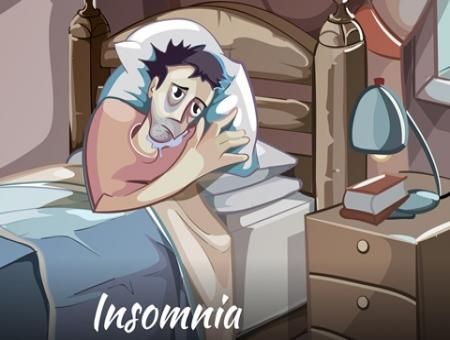
Depression: Let’s Talk About it!
By Dr. Ashima Srivastava in Mental Health And Behavioural Sciences , Clinical Psychology
Nov 08 , 2020 | 4 min read
Your Clap has been added.
Thanks for your consideration
Share
Share Link has been copied to the clipboard.
Here is the link https://www.maxhealthcare.in/blogs/clinical-psychology-mental-health-and-behavioural-sciences-depression-let-s-talk-about-it
Dr. Ashima Srivastava says, one of my clients described her experience of “Depression” as follows:
“I only think negatively, and I feel constantly hopeless and guilty. I constantly think about having a better family, health and future. My head hurts so much. I have occasionally encountered feelings, as if things in my life already happened, and I feel a sense of emptiness. I don’t know how to describe these feelings. I don’t feel normal, or maybe this is now the new normal for me. I just want to go back to how I used to be. Most of these problems are persistent, with very little happy periods. I used to like music and reading. But they also don’t interest me anymore. I don’t have a purpose in life. I spend most of my time reluctantly doing household chores, looking after my baby, and, I lie down and think. That also I can’t do properly, and my in-laws keep scolding me and calling me lazy. But I feel so tired. Now, the thing is, I don’t even want to look after my baby anymore. I didn’t even want him. What is wrong with me? What sort of a mother am I? I feel like killing myself now, but I don’t even have the guts to do so”!
The above-mentioned example shows how a person feels when he/she suffers from depression.
The feelings and emotions experienced by people with depression are deeply felt, and extremely personal who experiences them. Of course, the lived experiences of depression are different for different people, but the most common thing is- that it is extremely distressing as well as debilitating for the person experiencing it.
What can Depression lead to?
It is sad to note that the perception of many people about depression is that it is extremely flawed and incomplete in nature. Being a mental health professional, I have spoken to a countless number of people, who are completely misinformed about what depression is, and what its implications are, they came out with the following replies:
- Depression is synonymous to sadness
- It is extreme unhappiness, inability to work
- Feeling of loneliness- That I am not enough
Our expert says Depression is much more than being sad. It is a mere phase of having a bad mood and being lazy.
What would you do if you find someone close suffering from depression?
The most common replies were “I would ask them to be more positive and look at life positively”. Some replied saying “I would ask them to chill, exercise or maybe try a new hobby” or read motivational books. This advice often does not leave a significant positive effect on people.
Symptoms of Major Depressive Disorder
Sadness is an element associated with depression, but it is not actually depression. You can experience:
- Sense of depressed mood
- Sadness, hopelessness, emptiness, worthlessness
- Tearfulness and random bouts of crying spells, fatigue. Lack of concentration, restlessness
- Anhedonia- a loss of interest or pleasure in activities that the person once enjoyed doing
- Suicidal ideation (thoughts of suicide) as well as suicidal attempts
- Increased or decreased intake of food, excessive or decreased sleep, motor agitation or retardation
These symptoms can vary depending on the season, time of the day; can occur around pregnancy, menstruation or certain medical conditions. More often than not, these symptoms are distressing and debilitating in various domains. They may last for a minimum period of at least 2 weeks.
People need to understand that depression can happen to anyone even your school over-achiever or that confident looking executive might have it. There are high-functioning individuals whose social and occupational functioning is intact yet they experience a lot of distress. These people are good at masking emotions or pretending like they don’t exist yet perpetually feeling a sense of emptiness and distress inside.
“Please do not mask your emotions, and attempt to live or deal with it, Get Help”.
With an increase in the number of suicides, people need to understand that suicide is not mere a cowardice or lack of self-control but it is an actual disturbance, the essence of which only a sufferer knows. Suicide is an area that is extremely tricky to deal with and should be dealt with a lot of caution. It is just not possible to advise people to stay strong and face life.
Are there any Causes of Depression?
There is no one cause of depression. Most likely, depression has bio-psychosocial roots. This means that it can be caused due to a mixture of biological or genetic roots, social roots such as traumatic life events over the course of one’s life, lack of support, coping patterns, defence mechanisms or personality type. Do not let anyone suffer or let anyone suffer in silence.
Are there any Therapies to treat depression?
Different therapists have different therapeutic and theoretical orientations. Some effective therapies used in the case of depression include the gold standard CBT (Cognitive Behaviour Therapy) for relieving the symptoms of depression.
What people with Depression need is continuous familial and social support, acceptance, empathy, and not just mere sympathy, advice as Dr Ashima Srivastava mentioned. Please ensure that even family members, friends or guardians receive information from mental health professionals about how they can help, in the form of psycho-education. Make them feel safe, important, and listened to. Don’t trivialise their problems, and brush it off like any other minuscule problem. Give them an ear to listen to, provide them with a facilitative environment, give them time and space to recover and heal themselves.
Do remember that mental health is much more than depression. Depression is just one facet and a very important one. But, mental health is much more and involves lots of day to day problems as well as disorders. Do not neglect mental health. Say bye bye to STIGMAS!

Written and Verified by:
Related Blogs

Dr. Sameer Malhotra In Mental Health And Behavioural Sciences
Nov 07 , 2020 | 7 min read

Dr. Prashant Gupta In Mental Health And Behavioural Sciences , Psychiatry
Nov 08 , 2020 | 5 min read
Blogs by Doctor

The Inevitable Boards: How Parents Can Help
Dr. Ashima Srivastava In Mental Health And Behavioural Sciences , Clinical Psychology
Nov 08 , 2020 | 5 min read

Take Care of your Mental health at Workplace
Dr. Ashima Srivastava In Mental Health And Behavioural Sciences , Clinical Psychology
Nov 08 , 2020 | 2 min read

Prevent Suicidal Attempts: Let’s Talk About it!
Dr. Ashima Srivastava In Mental Health And Behavioural Sciences
Nov 08 , 2020 | 8 min read
Most read Blogs
Get a Call Back
Related Blogs

Dr. Sameer Malhotra In Mental Health And Behavioural Sciences
Nov 07 , 2020 | 7 min read

Dr. Prashant Gupta In Mental Health And Behavioural Sciences , Psychiatry
Nov 08 , 2020 | 5 min read
Blogs by Doctor

The Inevitable Boards: How Parents Can Help
Dr. Ashima Srivastava In Mental Health And Behavioural Sciences , Clinical Psychology
Nov 08 , 2020 | 5 min read

Take Care of your Mental health at Workplace
Dr. Ashima Srivastava In Mental Health And Behavioural Sciences , Clinical Psychology
Nov 08 , 2020 | 2 min read

Prevent Suicidal Attempts: Let’s Talk About it!
Dr. Ashima Srivastava In Mental Health And Behavioural Sciences
Nov 08 , 2020 | 8 min read
Most read Blogs
- CAR T-Cell Therapy
- Chemotherapy
- LVAD
- Robotic Heart Surgery
- Kidney Transplant
- The Da Vinci Xi Robotic System
- Lung Transplant
- Bone Marrow Transplant (BMT)
- HIPEC
- Valvular Heart Surgery
- Coronary Artery Bypass Grafting (CABG)
- Knee Replacement Surgery
- ECMO
- Bariatric Surgery
- Biopsies / FNAC And Catheter Drainages
- Cochlear Implant
- More...




